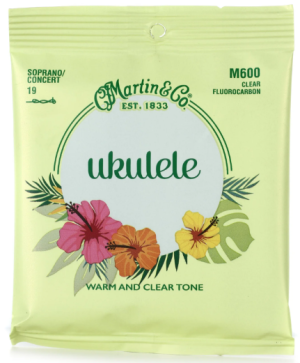but there is a tension difference. Concert strings on a tenor result in a lower tension whereas concert strings on a soprano would result in higher tension. Obviously we are talking about ukuleles, so the difference isn't going to be all that significant, but the difference is there even if it is a bit negligible.
That's precisely the reason I prefer Concert strings.
The tension is at a desirable level on soprano and tenor with Concert strings than with Soprano or Tenor strings respectively

As others have discussed in this thread, Ukulele strings are done counter-intuitively.
In actuality, if you used the
same strings on Soprano, Concert and Tenor, the same strings will have the lowest tension on the Soprano and highest tension on the Tenor due to scale length.
Personally, I think there is a sweet spot tension for ukuleles regardless of size, but ukulele string manufacturers (and maybe ukulele builders too) seem to be under the impression that Sopranos are inherently lower tension instruments and Tenors are higher tension instruments.
So they make higher tension (thicker) strings for Tenors and lower tension (thinner) strings for Soprano with Concert in the middle.
Back to my personal preferences, I think the "sweet spot" tension for GCEA tuning on Sopranos, Concerts and Tenors is often achieved if I just used Concert strings on all sizes. Tenor strings on Tenor ukuleles feels too high tension for me personally. Soprano strings on Soprano feels a tad too floppy.

